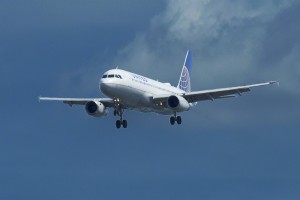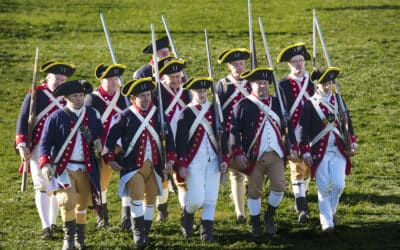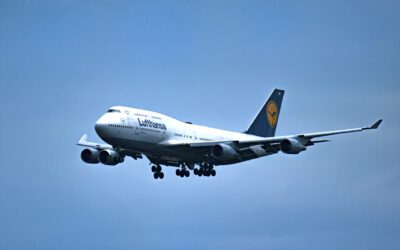A suggestion about how to avoid another bumping fiasco.
 By now you’ve likely read about United Airlines having airport security police forcibly remove a passenger from one of their flights after he refused to accept being involuntarily bumped from the flight. You might have seen the disturbing video of the passenger, bloodied by the confrontation, being dragged down the plane’s aisle.
By now you’ve likely read about United Airlines having airport security police forcibly remove a passenger from one of their flights after he refused to accept being involuntarily bumped from the flight. You might have seen the disturbing video of the passenger, bloodied by the confrontation, being dragged down the plane’s aisle.
United Express flight 3411 was United’s last of the evening flying from Chicago to Louisville. After boarding, United said they overbooked the flight because they needed to ferry crew members to Louisville for a morning flight. Gate agents offered $400 vouchers to get four passengers to give up their seats. No one agreed.
United then offered $800 vouchers and a hotel room. No one accepted. Saying they couldn’t offer more, United chose four passengers to bump involuntarily, including 69-year-old Dr. David Dao.
After two passengers deplaned, Dr. Dao refused to comply, saying he needed to see patients in the morning. United called airport security. Soon after entering the plane, a Chicago Department of Aviation security officer forcibly dragged Dr. Dao out of his seat, knocking his head into an armrest. Dr. Dao suffered a busted lip and was bleeding while being dragged down the plane’s aisle. He was taken to the hospital for treatment.
When a plane doesn’t have enough seats for all ticketed passengers, they’re asked to volunteer to give up their seats and take a later flight for compensation. If enough passengers don’t volunteer, even passengers with confirmed tickets, boarding passes and assigned seats can be involuntarily “denied boarding” or even deplaned. That’s known as bumping. The legal authority for this s a federal regulation. It can also be found in the airlines’ Contracts of Carriage (COC) (Here’s United’s COC.). It governs the relationship between the airline and its passengers. Every time a passenger purchases a ticket, they agree to the COC.
There are many reasons passengers are bumped. Airlines overbook flights to avoid flying empty seats. As in flight 3411, sometimes airlines must fly flight crew members to an airport to crew another flight. I was once bumped to make room for an Air Marshal. Sometimes only a smaller plane is available to take the place of an aircraft with mechanical problems. So, some lose their seats for others to fly.
Angry about how United treated Dr. Dao, many travelers are asking why the airlines need to overbook their flights, the main cause for air traveler bumping. Some consumers want Congress to end overbooking. Ending overbooking won’t end bumping, however. Even if it could, it would be a shortsighted solution.
Empty seats cost airlines revenue, so they offset passengers who miss their flights by selling more seats than the flights hold. Much of the time, the airlines accurately predict how many passengers will be no-shows. Sometimes their prediction is off-target and bumping passengers becomes necessary.
If Congress forbids the airlines to overbook, it will increase empty seats on flights and undoubtedly the airlines will raise ticket prices accordingly.
Before airlines can involuntarily bump passengers, they must first attempt to entice passengers to voluntarily relinquish their seats in exchange for compensation. The airlines decide how much compensation to offer. If they don’t get enough volunteers, they can involuntarily bump passengers, but then must pay cash compensation, which according to a number of factors may rise to a maximum of $1,350, for domestic flights.
Thus, it made no sense that United only offered $800 vouchers to passengers on flight 3411 to get them to voluntarily relinquish their seats. United knew they would have to pay passengers who were involuntary bumped considerably more than that, maybe as much as $1,350 in cash.
Plus, each airline must have a clearly defined “boarding priority” policy noted in its COC. That policy spells out which passengers to bump first in an overbooking situation.
When we examine the details of what happened on flight 3411, it’s clear that United’s poor handling of the situation led to Dr. Dao’s unnecessary injuries. United did a particularly poor job of obtaining volunteers to fly to Louisville the next day. Being cheap in offering compensation has cost them millions in lost good will. And, not following their own contract gave them no justification for their actions.
The situation could have and should have been avoided.
Airlines need to recognize that travel vouchers are not attractive to infrequent fliers. They generally expire within a year and are often hard to use. Cash payments are the best enticement for infrequent travelers, something the airlines have to pay anyway, if passengers are involuntarily bumped. For frequent fliers, airlines should consider possible perks as enticements, such as a year’s upgrade of their elite frequent flier level, which would cost airlines virtually nothing.
Increased compensation can help cut out involuntary bumping, too. Delta has just authorized agents to offer passengers up to $9,950 to entice them to voluntarily give up their seats and fly later.
How airlines offer compensation can make a difference. For example, Delta Air Lines has passengers compete to volunteer to give up their seats. When passengers check into an overbooked flight, they’re asked what travel voucher value they’d accept to volunteer to relinquish their seat. Delta knows who’s willing to volunteer in case of overbooking before they get to the gate. The system works. Delta involuntarily bumps just three passengers per hundred thousand, half the industry rate.
Eliminating overbooking won’t totally eliminate bumping and will raise ticket prices. To avoid United’s bumping fiasco, airlines must be more flexible and be willing to increase their compensation offers through cash, vouchers, perks and other means. They must more intelligently approach passengers to increase their willingness to voluntarily relinquish their seats and take a later flight.
(Image: United Airlines domestic flight landing at Philadelphia International Airport – Copyright © 2015 NSL Photography. All Rights Reserved.)
After many years working in corporate America as a chemical engineer, executive and eventually CFO of a multinational manufacturer, Ned founded a tech consulting company and later restarted NSL Photography, his photography business. Before entering the corporate world, Ned worked as a Public Health Engineer for the Philadelphia Department of Public Health. As a well known corporate, travel and wildlife photographer, Ned travels the world writing about travel and photography, as well as running photography workshops, seminars and photowalks. Visit Ned’s Photography Blog and Galleries.



